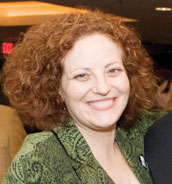 For more than 200 years the Missouri Constitution has protected the religious liberty of all Missourians whether in the majority or minority. It already provides all Missourians with the right to privately and voluntarily prayer in public schools, workplaces and other government settings. But in 2011 our legislature recklessly decided to play with these fundamental rights by passing Constitutional Amendment 2 which will appear on the Aug. 7 ballot innocuously called “Freedom to Pray in Public Places.” This misguided amendment should be rejected. It would undermine religious freedom by putting government in the business of religion and allowing majority faiths to impose their religious beliefs on the minority.
For more than 200 years the Missouri Constitution has protected the religious liberty of all Missourians whether in the majority or minority. It already provides all Missourians with the right to privately and voluntarily prayer in public schools, workplaces and other government settings. But in 2011 our legislature recklessly decided to play with these fundamental rights by passing Constitutional Amendment 2 which will appear on the Aug. 7 ballot innocuously called “Freedom to Pray in Public Places.” This misguided amendment should be rejected. It would undermine religious freedom by putting government in the business of religion and allowing majority faiths to impose their religious beliefs on the minority.
HJR 2 requires government to enter the market place to, in its words “ensure” the ability of persons to practice their religion. This is not government preventing discrimination, but promoting prayer. What is wrong with that? It encourages the very entanglement of government in religion that the First Amendment was enacted to prohibit. It deceptively gives the religion practiced by a majority the ability to have government assist them in practicing their religion. At first blush this seems attractive, unless the religion you practice represents a minority of people in your community. Then the “protections” allegedly afforded by the language of Amendment 2 will not likely extend to you.
Missouri residents who see Amendment 2 on August 7 should vote with a resounding “No.” Any other response would take Missouri back to a time and a place we rejected more than 200 years ago. It is strikingly difficult to confront this head-on. For years, religious minorities have been challenged again and again as Christian proponents seek to impose their religious views. When we push back, we fear being perceived as anti-faith, anti-Christian. We are not. Missourians are a diverse religious people because we have constitutional protections that allow us to practice many different faiths, and for those who choose not to follow faith at all, they have the same freedom to do so.
Religious tension in this country has never been so high. Political leaders are tested on how they engage politically as a matter of faith, rather than as a matter of good public policy. It feels as if public policy in Missouri has become faith policy. We are certain Missouri legislators believe sincerely that they are serving their constituencies by serving their faith. They are not doing right by the people of Missouri when they choose to use legislation to promote a particular religious perspective, crossing that remarkable line blazed by the US Constitution, embodied in the First Amendment, that government “shall make no law respecting an establishment of religion, or prohibiting the free exercise thereof…..” The sponsors of this measure are fueled by religious mission to share their faith with others by legislative mandate; while the First Amendment is a tough barrier, they have worked stealthily to find ways around it.
Amendment 2 will encourage students to challenge school curricula, arguing that discussion of evolution violates their religious beliefs, that creationism and intelligent design should be reasonably presented as religious alternatives to scientific understanding, that they don’t have to do a particular assignment because it offends them religiously.
Amendment 2 will authorize and encourage clergy to pray before public and governing bodies when the Courts have repeatedly ruled this activity unconstitutional. This will result in the religion of the majority being favored for these tasks, thus providing the very advantage which the Founding Fathers recognized as dangerous to the creation and maintenance of a diverse society.
Ironically the amendment requires public posting of the Bill of Rights in public schools while, at the same time, promoting religious policies that are, in light of those very rights, unconstitutional.
The measure provides no legitimate religious protection or expansion that doesn’t already exist, and will do nothing except rally those who wish to fight the reality of the First Amendment and impose a majority religion on Missourians of different faiths. What that “majority religion” is you can discern merely by looking at census data. If you vote “no,” are you anti-faith or anti-Christian? Not in the least. By voting “No,” you protect religious liberty for all.
Karen J. Aroesty is regional director of the Anti-Defamation League, Missouri/Southern Illinois, as well as eastern Kansas, and is based in St. Louis.


